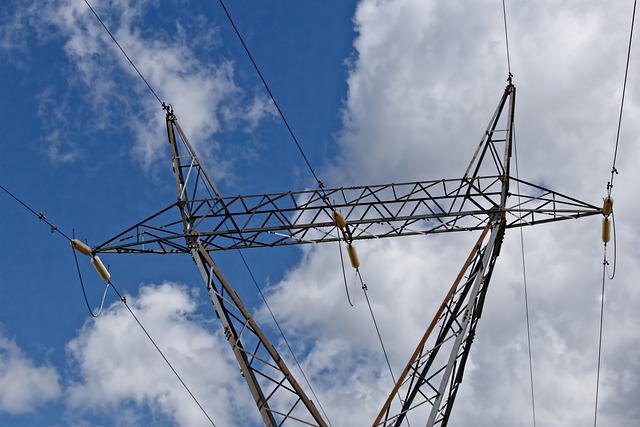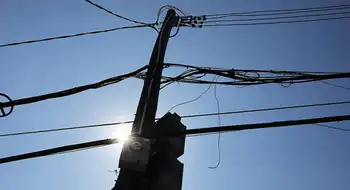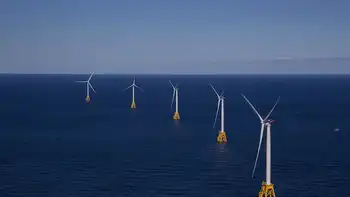Clean power sector needs workers
Educators, industry players and analysts see a widening gap between the demand and supply of trained staff for the thousands of green-power projects expected to start operations between 2011 and 2013.
Ontario, with its lucrative, long-term clean-energy contracts, is most vulnerable. Some 50,000 clean-energy jobs are expected to be created in the province in the next three years. The jobs range from construction workers building wind and solar farms to electrical engineers, factory machinists and information technology specialists.
Compounding the problem, scores of Canadian power workers will retire soon, while a slew of new specialized college programs will take several years to churn out green graduates.
According to CanadaÂ’s Electricity Sector Council, 74 of the industryÂ’s workers are over the age of 40 and during the next decade, 40 of all workers plan to retire.
WhatÂ’s more, 30 of the companies that produce electricity have no plan to manage the looming exodus.
“It will slow down the growth of [renewable] power,” said Om Malik, president of the IEEE, referring to the expected shortage of workers. The IEEE is an international professional organization for the advancement of technology.
“It’s exactly what was happening two, three years back, here in Alberta, in the oil sands. There was such a shortage of people,” Mr. Malik said.
During the boom years of AlbertaÂ’s oil-sands development, a labour shortage either stretched out the construction time on projects or led to cancellations, he said.
A U.S.-Canada clean-energy partnership warns an “impending” labour shortage and new technologies that require demanding training pose two big hurdles to greenhouse gas reduction and modernizing an aging electrical grid.
“Within five years, the electricity sectors in both Canada and the United States will suffer from a severe shortage of skilled workers,” said a recent report from the Canada-U.S. Clean Energy Dialogue.
The group, set up in 2009 when Barack Obama, the U.S. President, and Stephen Harper, the Prime Minister, met in Ottawa, is charged with expanding clean-energy research and development in the two countries.
The issue will “threaten to compromise North America’s ability to capitalize on clean energy,” the group said.
Ontario, a hotbed for solar power projects, faces the most formidable hurdles in finding skilled workers.
In the coming years, Ontario will require thousands of electricians, electrical contractors and developers experienced in photovoltaic operations and pricing — workers already in short supply.
A 2009 poll of CanadaÂ’s solar industry found that 41 of the 91 companies surveyed were experiencing labour shortages, particularly for equipment installation.
The companies expected the number of workers needed by the sector to double by the end of 2011, and that was before Ontario announced generous tariffs for small producers to feed green energy into the provincial grid. The program thatÂ’s bound to trigger even heavier demand for skilled labour.
“With the feed-in tariff program in Ontario, that gap may actually broaden,” said Elizabeth McDonald, president of the Canadian Solar Industries Association. “We are concerned about the gap both in terms of numbers and in terms of skills.”
OntarioÂ’s Sustainable Energy Association, an organization formed to implement community-based green energy projects, has joined the Canadian Union of Skilled Workers and two colleges to study how to meet the expected demand for skilled labour.
They believe workers will increasingly need to have multiple skills so they can understand the big clean-energy picture.
“If you’re installing a solar system, or building a wind project, or developing a green community, you need to think about things from an integrated approach,” said Kris Stevens, the association’s president.
“The system is changing. It’s not about big power anymore and large centralized plants. It’s about distributed generation.”
GoodWork Canada, founded in 2001, is a venture that matches ”green-minded people” with jobs, contracts and internships.
Starting as a small email list, the website goodworkcanada.ca has grown by about 40 annually, said its founder Peter Blanchard. It now gets hundreds of thousands of hits each month.
“We have seen an increase in postings from wind and solar projects, definitely, in the past while,” he said.
Finavera Renewables Inc., a Canadian wind power developer, said part of its strategy is to stand out among its peers with the quality of its staff. To attract and retain seasoned employees, a scarce commodity for fledging companies, it offers “above average” perks, including stock options.
“I need somebody who has spoken the language of large utilities, who has negotiated successfully with GE, or groups of that ilk. Having the ability to interface with the big boys is very important,” chief executive Jason Bak said.
“We’ve got to ‘incentivize’ people by allowing them to participate in the growth of the company and one great way that we can do that is by issuing options [because] the return for a success in a junior company of our size is much greater than in a large company.”
Related News

Trump's Vision of U.S. Energy Dominance Faces Real-World Constraints
WASHINGTON DC - Former President Donald Trump has consistently advocated for “energy dominance” as a cornerstone of his energy policy. In his vision, the United States would leverage its abundant natural resources to achieve energy self-sufficiency, flood global markets with cheap energy, and undercut competitors like Russia and OPEC nations. However, while the rhetoric resonates with many Americans, particularly those in energy-producing states, the pursuit of energy dominance faces significant real-world challenges that could limit its feasibility and impact.
The Energy Dominance Vision
Trump’s energy dominance strategy revolves around deregulation, increased domestic production of oil and gas, and the rollback…





